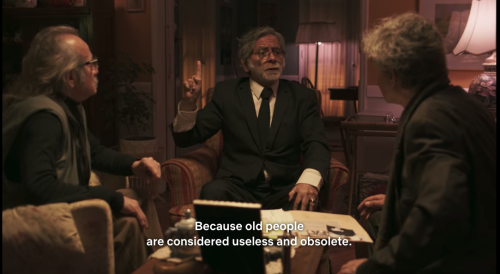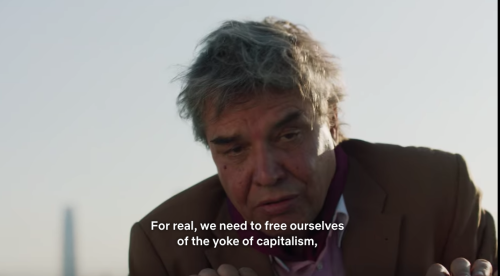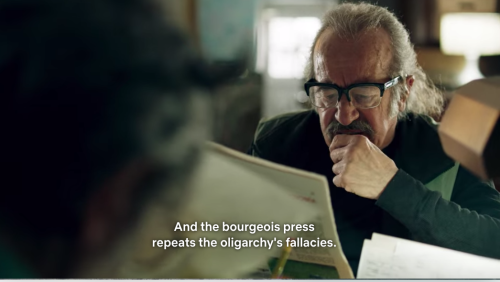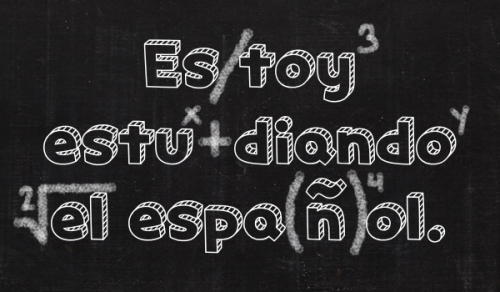#spanish language

Art vocabulary
I haven’t posted anything in a very long time since I was busy with other things. But from now on I will try to be more active on this blog again :)
- la acuarela - watercolours
- el/la artista - artist
- el atelier - atelier
- bosquejar- to sketch
- el bosquejo - sketch
- el caballete - easel
- la caligrafía - calligraphy
- el color - colour
- el cuadro - painting
- dibujar - to draw
- el dibujo - drawing
- la galería de arte - art gallery
- la goma de borrar - eraser
- ilustrar - to illustrate
- la ilustración - illustration
- el lápiz - pencil
- el lápiz de color - crayon
- el lienzo - canvas
- mezclar (colores) - to mix (colours)
- el museo - museum
- la paleta - palette
- el papel - paper
- el pincel - brush
- pintar - to paint
- la pintura - paint
- la pintura acrílica - acrylic paint
- la pintura al óleo - oil paint
- la pluma - pen
- el rotulador - marker
- el sacapuntas - pencil sharpener
- el tubo de pintura - paint tube


Travel Vocabulary
Since I’m back from my own vacation I have the time to continue posting on this blog. To start off again, I thought vocabulary about vacations would be quite fitting :)
- la acampada - camping
- el aeropuerto - airport
- la atracción turística - tourist attraction
- el avión - airplane
- el autobús - bus
- la cámara - camera
- la ciudad - city
- el crucero - cruise ship
- la estación de tren/metro - train/subway station
- el equipaje - luggage
- la foto - photo
- el/la guía turístico/-a - travel guide
- hacer turismo - to go sightseeing
- hacer una foto - to take a photo
- hacer un crucero - to cruise
- el hotel - hotel
- ir de acompada - to go camping
- ir en avión/tren/etc. - to go by plane/train/etc.
- el lago - lake
- llegar - to arrive
- la maleta - suitcase
- el mapa - map (for countries, the world)
- el metro - subway
- la mochila - backpack
- la montaña - mountain
- el océano - ocean
- el/la pasajero/-a - passenger
- el pasaporte - passport
- el plano - map (for cities, subway)
- la recepción - reception
- el/la recepcionista - receptionist
- el recuerdo - souvenir
- el restaurante - restaurant
- salir - to depart
- la tarjeta postal - postcard
- el taxi - taxi
- la tienda de campaña - tent
- el tren - train
- el/la trotamundos - globetrotter
- el turismo - tourism
- el/la turista - tourist
- vacaciones - vacation
- viajar - to travel
- el viaje - travel
- el/la viajero/-a - traveller
- visitar - to visit

Gems in Spanish
Gems are beautiful and so is the Spanish language, so I thought both things would go very well together :)
- la gema - the gem
- la amatista- amethyst
- el ámbar - amber
- el cuarzo - quartz
- el diamante - diamond
- la esmeralda - emerald
- el granate - garnet
- el jade - jade
- el lapislázuli - lapis lazuli
- el ópalo - opal
- el peridote - peridot
- la piedra de luna - moonstone
- el rubí - ruby
- el topacio - topaz
- el zafiro - sapphire

Bird names in Spanish
A few bird names because I love birds :)
- el águila - eagle
- el avestruz - ostrich
- el buitre - vulture
- la cacatúa - cockatoo
- el colibrí - hummingbird
- la corneja - crow
- el cuervo - raven
- el flamenco-flamingo
- el gallo-rooster
- el ganso - goose
- la garza - heron
- la gaviota - seagull
- la grulla - crane
- el gorrión - sparrow
- el halcón - hawk
- la lechuza - owl
- el loro - parrot
- el martín pescador - kingfisher
- el mirlo - blackbird
- el pájaro carpintero - woodpecker
- la paloma - pigeon
- el pato - duck
- el pavo - turkey
- el pavo real - peacock
- el pelícano - pelican
- el periquito - budgie
- el petirrojo - robin
- el pingüino - penguin
- el pollo - chicken
- el tucán - toucan
- la urraca - magpie


15 words to use instead of “decir”
While writing a story or a short text it is always recommendable to have a bit of variety in your choice of words. So here are a few Spanish alternatives for the verb “decir”, to make stories more exciting!
- aclarar-to clarify
- anunciar-to announce
- asegurar-to assure
- exclamar-to exclaim
- explicar-to explain
- farfullar- to mumble
- gritar-to scream, to shout
- insistir-to insist
- murmurar-to murmur
- repitir-to repeat
- replicar-to retort, to reply
- responder-to reply, to answer
- sentenciar-to declare
- susurrar-to whisper
- tartamudear-to stutter
verb
to nap, doze or snooze.
Lo siento que no contesté, estaba dormitando.
Sorry I didn’t answer, I was napping.
noun(feminine)
1. a gloom or semi-darkness in which it’s impossible to tell where the light begins and the darkness ends.
2.(pl)shadows
En las penumbras de la noche salgo a encontrar mi próxima víctima.
In the shadows of the night, I go out to find my next victim.
TV shows to watch in Spanish → Los Carcamales (”Oldsters” in Netflix).
Three friends in their 70s step out of retirement to become a band of outlaws whose mission it is to help those let down by the justice system.
I’m begging you all to watch this action-comedy series about three vigilante senior citizens trying to bring down a crime lord. It’s full of Chilean humor, socially relevant, and over-the-top ridiculous in all the best ways. 10/10.
Post link
El perro es al gato lo que el gato es al ratón. || Dogs are to cats as cats are to mice.
Stop Trying to Figure it All Out / Deja de Intentar Comprenderlo Todo
Think about it. They say that learning a new language comes more easily when you’re young. That’s because a child has no choice but to accept the language just as it is presented to him. He doesn’t need some rigorous explanation about why something is conjugated irregularly or why a letter makes a certain sound.
Piénsalo. Dicen que aprender un idioma es fácil cuando eres pequeño. Esto sucede porque un niño no tiene otra opción más que aceptar el idioma tal como se le presenta. Para el niño, no es preciso dar una explicación rigorosa sobre la conjugación irregular de un verbo ni el por qué cierta letra hace cierto sonido.
One plus one will always equal two. But “two” is not equal to “too”. Or even to “to” for that matter. You see. You have examples of this in your own language. This isn’t math people! So be kind to the new language you’re learning.
Uno mas uno siempre será dos. Pero ser número uno y el ser uno solo, no es lo mismo. Y aún más diferente, ser yo quien los uno. ¡Ya ves! Tienes ejemplos de esto en tu propia lengua. ¡Estas no son matemáticas amigos! Entonces sé gentil con el idioma que elegiste aprender.
This is a major stumbling block for many people. Many language courses like to teach hard and fast rules. When students come across exceptions, and they’re always there, they immediately want to wrap their heads around it. I’ve got news for you. You cannot control a language, but you can accept it with all its beautiful exceptions just as they are.
Esto bien puede ser el mayor tropiezo para alguien que está aprendiendo. Muchos cursos de idiomas enseñan reglas concretas e inmutables. Cuando estudiantes encuentran excepciones, y sí que las hay, siempre quieren descifrarlas. Déjame contarte algo. Tú no puedes controlar a un idioma. Pero sí puedes aceptar el idioma con todas sus bellas excepciones tal y como son.
I have found that when you need an explanation for everything, even when there is no explanation, it causes frustration. This, inevitably, makes language learning boring and more work than it has to be.
Me he dado cuenta que cuando necesitas una explicación para todo, aún cuando no existe una, sólo causa frustración. Inevitablemente el aprender un idioma se convierte en algo aburrido y más trabajoso de lo que debe ser.
It doesn’t have to be this way. Love your new language the same way you would want your partner to love you. Unconditionally.
Simplemente no tiene que ser así. Ama tu nuevo idioma como quisieras que tu pareja te ame. Incondicionalmente.
Read this article in both English and Spanish, then compare and contrast the two forms of communication.
Post link
Master Post of SpanishResources
From sites with full courses, to sites to watch Telenovelas, to worksheets, to apps, to TONS of podcasts, and so much more!
I collected every single resource I could find that was made just for Spanish
I really hope this helps you!!And if you have any more to add, please let me know!
(PS - if you are learning German, check out THIS master list. If you are learning Korean, check out THISone!)
Master Post of Spanish Resources (Sites, Apps, Podcasts, Etc) ⋆
MEDITERRANEAN-WORDS’ FIVE A DAY 5
- italian — spanish · english
- avvocato/a — abogado/a · lawyer
- agenti di polizia / poliziotto/a — agente de policía · police officer
- medico/a — doctor/a · doctor
- mediatore/trice — intermediario · broker / agency
- contabile — contable · accountant
—
- french — spanish · english
- avocat — abogado/a · lawyer
- agent de police / policier — agente de policía · police officer
- docteur — doctor/a · doctor
- médiateur/trice — intermediario · broker / agency
- comptable — contable · accountant
MEDITERRANEAN-WORDS’ FIVE A DAY 4
- italian — spanish · english
- nome utente dimenticato — olvidé nombre de usuario · forgot username
- password dimenticata — olvidé contraseña · forgot password
- mostra — mostrar · show / display
- nascondi — ocultar · hide
- annuncio pubblicitario / pubblicità — anuncio / publicidad · ad
—
- french — spanish · english
- identifiant oublié — olvidé nombre de usuario · forgot username
- mot de passe oublié — olvidé contraseña · forgot password
- montrer — mostrar · show / display
- cacher— ocultar · hide
- publicité — anuncio / publicidad · ad
MEDITERRANEAN-WORDS’ FIVE A DAY 3
- italian — spanish · english
- personale — personal · personal
- ripartizione — desglose · breakdown / rundown
- email — correo electrónico · email address
- password — contraseña · password
- iscriversi — registrarse · sign up
—
- french — spanish · english
- personnel — personal · personal
- panne — desglose · breakdown / rundown
- email — correo electrónico · email address
- mot de passe — contraseña · password
- signer — registrarse · sign up
MEDITERRANEAN-WORDS’ FIVE A DAY 2
- italian — spanish · english
- informazione — información · information
- quanto — cuanto · how much
- la spesa — la compra / la cesta de la compra · groceries
- consegna — a domicilio · delivery
- applicare — aplicar · to apply
—
- french — spanish · english
- information — información · information
- combien — cuanto · how much
- épicerie — la compra / la cesta de la compra · groceries
- livraison — a domicilio · delivery
- postuler — aplicar · to apply
MEDITERRANEAN-WORDS’ FIVE A DAY 1
- italian — spanish · english
- luogo — lugar · location
- università — universidad · university
- negozio — tienda · store / shop
- ambasciata — embajada · embassy
- farmacia — farmacia · pharmacy
—
- french — spanish · english
- endroit — lugar · english
- université — universidad · university
- magasin — tienda · store / shop
- ambassade — embajada · embassy
- pharmacie — farmacia · pharmacy
THE 3/5 METHOD
hello everyone! today i wanted to share the method i’ve been developing and using to study vocabulary. feel free to adapt this to your own language needs :)
- the problem — have you seen those language learning ads that practically claim you can be a spanish master with five minutes a day thanks to the magic of compound effect? that’s cute, but it’s only a third of the equation if you’re not using those five minutes effectively.
- the solution — your brain, much like the documents on your computer, needs sorting for it to be a functional place for active search. this method is the language version of that for a total of fifteen minutes daily.
- first five minutes — wether you use an app like duolingo or you’re watching content in your target language, use the first five minutes to actively listen and absorb the vocabulary you’re learning. don’t copy anything, just hear.
- second set of five minutes — the key in this set is active recalling. this tells your brain to keep this new information you just fed it as opposed to having it go to the dusty catch all cabinet in the back of your mind. recall andthen write down as many terms as you remember. first write from memory, check for any missing vocabulary and mistakes after recalling.
- last set — the key part of the last five minutes is cementing that info in your brain so it knows it’s a piece of information you’re gonna be using daily so it stays fresh and relevant by reviewingdaily what you’ve learnt that day and what you’ve learnt up until that point. hope this helps <3







